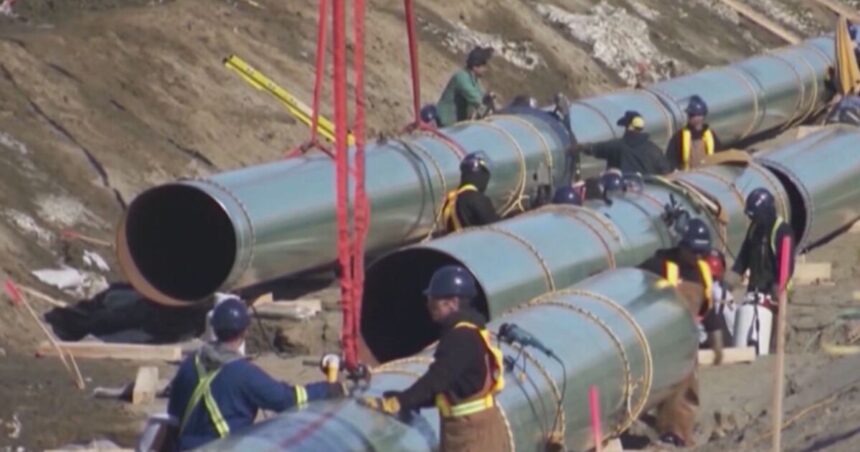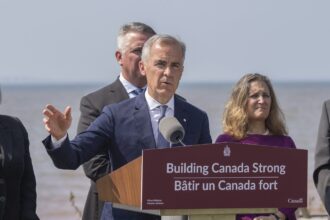The towering cranes of construction sites across Canadian cities tell only half the story of the nation’s infrastructure ambitions. Behind these visible symbols of progress lies a complex landscape of public opinion that surprisingly favors development, even when faced with local resistance.
A recent Nanos Research poll reveals that 65% of Canadians believe the federal government should proceed with critical national infrastructure projects despite local opposition. This marked shift in public sentiment comes as Canada grapples with housing shortages, transportation bottlenecks, and energy transition challenges across the country.
“What we’re seeing is a pragmatic approach from Canadians who recognize that sometimes the national interest must prevail,” explains Nik Nanos, Chief Data Scientist at Nanos Research. “The data suggests citizens are increasingly concerned about infrastructure deficits impacting their daily lives and economic opportunities.”
The survey, which polled 1,084 Canadians from diverse regions, found support for infrastructure development transcends traditional political divides. Urban respondents (68%) were marginally more supportive than rural Canadians (61%), though both groups demonstrated majority backing for development priorities.
This sentiment represents a significant evolution in Canadian politics, where “not in my backyard” attitudes have historically derailed or delayed crucial infrastructure projects. From housing developments in Toronto to pipeline expansions in British Columbia, local opposition has frequently created roadblocks for national initiatives.
Minister of Infrastructure Catherine McKenna addressed these findings at a press conference in Ottawa yesterday. “We’re committed to meaningful consultation with communities, particularly Indigenous groups, but we also recognize that Canada faces significant infrastructure challenges that require decisive action,” McKenna stated.
The polling data arrives amid the government’s $180 billion Investing in Canada infrastructure plan, which aims to create long-term economic growth through investments in public transit, green infrastructure, and social projects across provinces and territories.
Economic analysts point to the tangible benefits of infrastructure development. “Every dollar invested in infrastructure generates between $1.50 and $3.00 in economic growth,” notes Avery Williams, senior economist at the Canadian Centre for Economic Analysis. “The multiplier effect creates jobs, boosts productivity, and enhances business competitiveness.”
However, critics caution against dismissing local concerns too readily. Environmental advocacy groups and Indigenous communities have raised legitimate questions about specific projects’ impacts on sensitive ecosystems and treaty rights.
“The challenge lies in balancing national priorities with local autonomy,” says Dr. Helena Ramirez, professor of urban planning at the University of Toronto. “While the poll results suggest Canadians broadly support development, the devil is in the details of each project’s implementation and community engagement processes.”
Regional differences were notable in the survey findings. Atlantic Canadians showed the strongest support for national infrastructure priorities (72%), while Quebec residents were most likely to emphasize local consent (42%).
The federal government has pledged to improve consultation processes while maintaining momentum on critical projects. This dual approach aims to address the infrastructure deficit that has accumulated over decades of underinvestment.
As Canada faces mounting pressure to address housing affordability, climate resilience, and economic competitiveness, the fundamental question remains: How can we balance the urgent need for infrastructure development with meaningful respect for local communities whose lives will be directly impacted by these projects?










